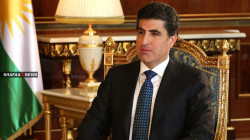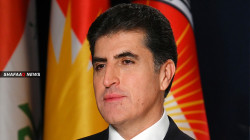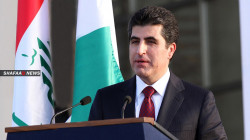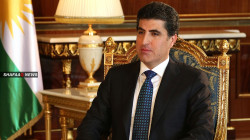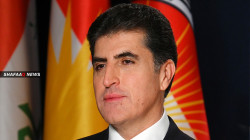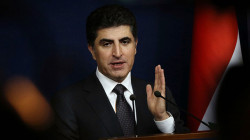The unmistakable fingerprints of Nechirvan Barzani in the promotion of peace and stability in the Region
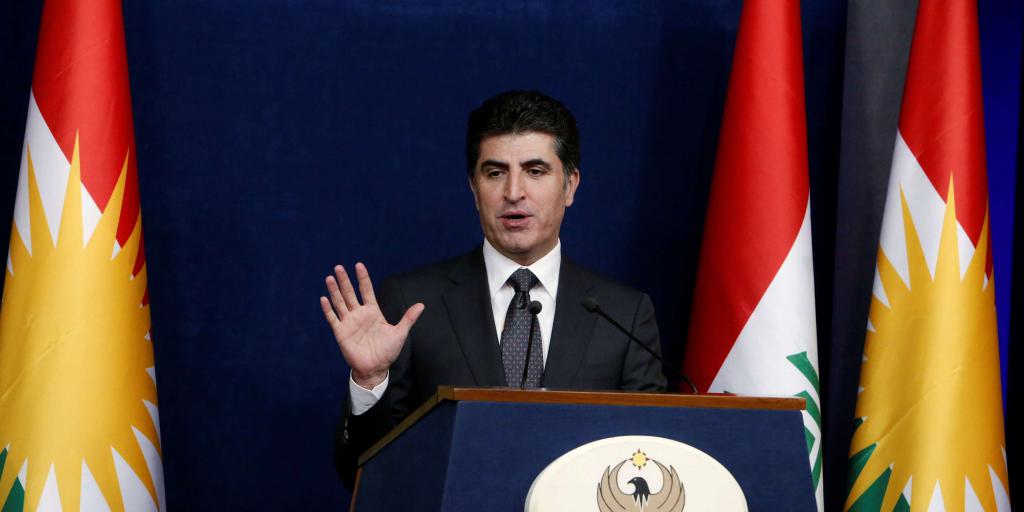
Shafaq News / Nechirvan Barzani, the President of the Kurdistan Region, has been making headlines recently due to his exceptional enthusiasm and dedication to his mission. His visit to the Vatican and Rome is just the latest chapter in a long line of efforts to promote dialogue, coexistence, and understanding while serving the region, Iraq, and the world. Over the years, Barzani has taken several significant steps to promote peace, stability, and democracy in the region, and his fingerprints are unmistakably evident in all that has been accomplished.
Barzani's trip to the Vatican and Italy is in line with his principled approach to addressing regional and international issues, as well as his efforts to strengthen relations with Baghdad. In fact, Iraqi Prime Minister Muhammad Shia al-Sudani praised Barzani for his efforts to enhance ties between the two cities and overcome all obstacles, particularly with regard to the oil and gas file.
Barzani's warm welcome at the Vatican is not surprising, given his previous meetings with Pope Francis, during which the latter acknowledged the president's patience and dedication to Iraq. During his current visit, Barzani is expected to discuss issues related to the Christian presence in Iraq and the region, as well as the political and security connections between Rome and Erbil.
Barzani is keenly aware of the critical role played by local Christians in building and developing Kurdistan. In fact, the Vatican ambassador to Iraq, Mitia Leskovar, commended Barzani and the Kurdistan Region for their welcoming attitude towards displaced Christians and their commitment to coexistence, tolerance, and acceptance of others.
Barzani's visit to Baghdad also underscores his commitment to building bridges and promoting convergence. During his meetings with various political leaders, including the head of the State of Law Coalition Nouri al-Maliki and the leader of the National Wisdom Movement Ammar al-Hakim, Barzani called for a new and multilateral dialogue with all political forces to stabilize the political system in Iraq and find a political solution within the country.
Barzani also emphasized the importance of diversity in Iraq, noting that the country can only be stable and victorious when all its components - Shiites, Sunnis, Kurds, Christians, Turkmens, and others - are partners in its success. He firmly believes that the Iraqi solution is the best approach to strengthen the country's sovereignty and the people's confidence in the authority while consolidating trust among all Iraqi components.
Over the years, Nechirvan Barzani has dedicated himself to resolving issues along the Erbil-Baghdad line, both in his roles as president of the region and as prime minister. Iraqi Prime Minister Muhammad Shia al-Sudani's appreciation of Barzani's efforts is thus situated in this context, just as he previously focused his efforts towards the government of Mustafa Al-Kadhimi. U.S. Ambassador Elena Romanowski has also expressed the United States' support for Iraq and the Kurdistan Region, indicating an interest in the Erbil-Baghdad dialogue and the resolution of their issues, as well as backing Barzani's movement and vision.
Barzani has taken several significant steps to promote peace, stability, and democracy in the region. For instance, he issued a regional decree in which he set November 18 as the date for holding parliamentary elections in the region, defusing a crisis and enabling the region's voters to exercise their right to choose their elected representatives and contribute to addressing the challenges facing the region. This followed visits by the region's presidency to all political parties to gather support for the decree.
Barzani's foreign relations strategies are grounded in his vision for the region. In March, he accepted Sheikh Mohammed bin Zayed's invitation to visit Abu Dhabi, which marked the culmination of years of rapprochement, economic and political interests, and a close personal connection he established with the leaders of the U.A.E. This visit boosted Kurdistan's role in the region and cemented Barzani's reputation as a man of negotiation, peace, and reconstruction in a volatile environment.
Barzani has also been vocal about the importance of coexistence, reconciliation, and the preservation of common heritage in the region. During his visit to the Vatican, he called for these principles to guide Iraq's fight against dictatorship and congratulated the Chaldeans, Assyrians, and Syriacs on the Assyrian Babylonian New Year and the Akito feast. He even congratulated the Communist and Kurdistan parties, ideological opponents, on their founding anniversaries, emphasizing that their struggle deserves respect and appreciation. Additionally, he pledged to start a genuine dialogue with Kurdish forces at the 14th Congress of the Kurdistan Democratic Party (K.D.P.) in November.
Despite his numerous concerns, Barzani continues to receive high-profile visitors who are keen to establish partnerships with Kurdistan. For example, U.S. Secretary of Defense Lloyd Austin recently visited Barzani in Erbil to emphasize the American partnership. German Foreign Minister Annalena Baerbock also reaffirmed her country's support for Iraq and Kurdistan and reiterated Germany's commitment to assisting the Peshmerga forces in their fight against terrorism. United Nations Secretary-General Antonio Guterres also visited Erbil in March and urged dialogue and convergence with Baghdad, asserting that such efforts are crucial to achieving peace and prosperity for all Iraqis.
Barzani's schedule during the Munich Security Conference in February was highly demanding, as he held meetings with several senior political officials and representatives from various countries over three days. Notable among them were U.S. Secretary of State Antony Blinken, British Foreign Secretary James Cleverly, Senator Lindsey Graham, the President of the Republic of Azerbaijan, the Prime Ministers of Poland and Armenia, and foreign ministers from Italy, the Vatican, Norway, Qatar, Kuwait, and Jordan, among others. Also in attendance were the President of the European Commission, the European Commission's Foreign Affairs and Security Policy Officer, the U.S. Assistant Secretary of Defense for International Security Affairs, the German State Secretary for Economic Cooperation and Development, the Vice-Chairman of the Foreign Affairs Committee of the German Parliament, a parliamentary delegation from the Social Democratic Party of Germany, and many other dignitaries.
Barzani's foreign policy is centered on promoting peace and stability in the region, regional and international cooperation in combating war and terrorism, and consolidating peace. This approach has led to the establishment of formal representations in the Kurdistan Region by over 30 nations, according to the region's presidency's official website.
Barzani's fingerprints are unmistakably evident in all that has been accomplished, and he is optimistic about continuing to make progress towards the region's future. Observers agree that his efforts have been instrumental in promoting peace and stability in the region, and they expect him to achieve even greater successes in the years to come.
